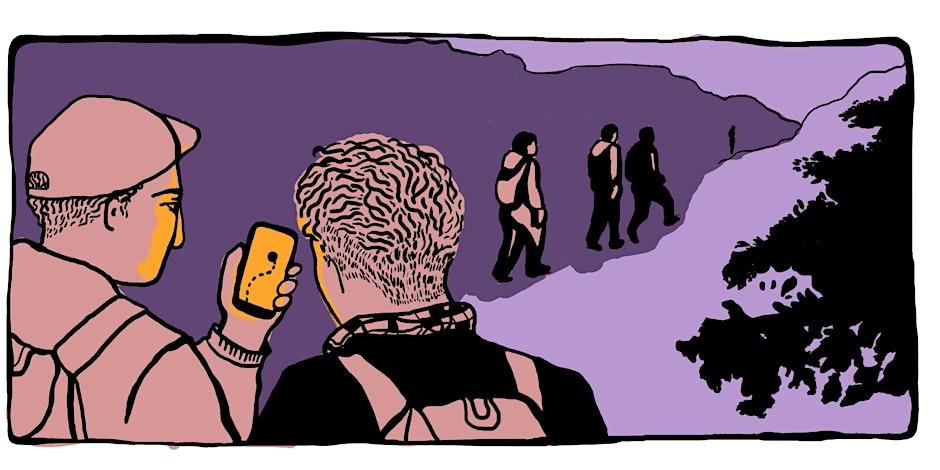Does counter-smuggling work? And is there a border policy that doesn’t get people killed?
Speaker(s):
Associated with:

A lunchtime seminar on border enforcement, border deaths, and options for more humane border policies.
The UK government has militarised the English Channel, passed laws to criminalise anyone arriving by small boat, and is now planning to deport asylum seekers to Rwanda. These measures are justified by unevidenced claims they will counter and disrupt transnational smuggling networks and thereby reduce irregular border crossings and migrant deaths.
Despite millions of pounds spent on border enforcement and ‘counter-smuggling’, over 400 people have died at English Channel since 1999 – more than one person a month for 25 years.
Researchers and advocates working across the Channel have long known that more border enforcement does not prevent people from moving. Rather, it induces people to take longer, more dangerous routes. It raises the price of crossing irregularly and emboldens smuggling services. And it increases the vulnerability of asylum seekers to exploitation and harm.
In the lead up to the next UK and EU elections, we invite you to join a lunchtime seminar examining the evidence around the harmful effects of counter-smuggling and the risks that enforcement poses to protection mechanisms and the asylum system.
Speakers working across key borders in Europe and the Channel will share relevant findings and first-hand accounts of the effects of counter-smuggling and border enforcement.
This event will be formed by a panel discussion, followed by a Q&A. We encourage anyone who is interested to join us, and especially people working in the migrant justice sector (broadly defined).
Organisers:
Human Exploitation, Trafficking and Smuggling research group, Department of Security and Crime Science, University College London
Border Criminologies, Center for Criminology, University of Oxford
openDemocracy ‘Beyond Trafficking and Slavery’
Speakers:
Chair: Dr. Cameron Thibos
Cameron is the managing editor of Beyond Trafficking and Slavery at openDemocracy. He is a former research associate at the Migration Policy Centre of the European University Institute in Florence, Italy, and holds a D.Phil from the Department of International Development at the University of Oxford.
Samyar Bani
Samyar arrived to the UK in 2019 to request political asylum. The UK Border Force instead accused him of facilitating illegal entry by piloting a small boat across the Channel. His conviction was quashed by a Court of Appeal. The UK government responded by introducing new immigration offences through the Nationality and Borders Act, de facto criminalising any irregular arrival to the UK.
Hope Barker
Hope has been working with people-on-the-move in Greece since 2018. She has been involved in both grassroots direct aid structures and advocacy work, and has also published analyses of EU migration policy for the Border Violence Monitoring Network. Her focus is on deaths and disappearances of people on the move, and the use of new technologies to facilitate rights violations at European borders.
Francesca Parkes
Francesca is the Northern France Coordinator at Refugee Legal Support. Her work focuses on sharing legal information with people on the move in Calais. For the last year she has been working with asylum seekers criminalised on arrival in the UK. She coordinates a forum of criminal, immigration and public law practitioners working to challenge the criminalisation of asylum seekers in the UK.
Mäel Galisson
Maël is a journalist and author of the investigative series “The Calais Border: A silent serial killer”, published by openDemocracy in February 2024. He has worked on the Calais border for many years, documenting what has been happening at the UK's doorstep through freelance journalism and independent research work. He is also the author of “The Jungle: Calais's Camps and Migrants” (Polity Press, 2018).
David Leone Suber
David is a researcher and freelance journalist, working on intersection between organised crime, people smuggling and border policing. He is part of the Human Trafficking, Smuggling and Exploitation research groups at UCL's Jill Dando Institute of Crime Science and is currently a visiting researcher at Border Criminologies, University of Oxford.
Access:
This is a hybrid event. 80 seats are available for those who can join us in person at 12:00-14:00 at UCL's Bentham House, Moot Court Room (Ground Floor), 4-8 Endsleigh Gardens, London, WC1H 0EG. Please register here.
Questions:
For any questions or inquiries about the event, contact: david.suber.19@ucl.ac.uk


 Add to calendar
Add to calendar


